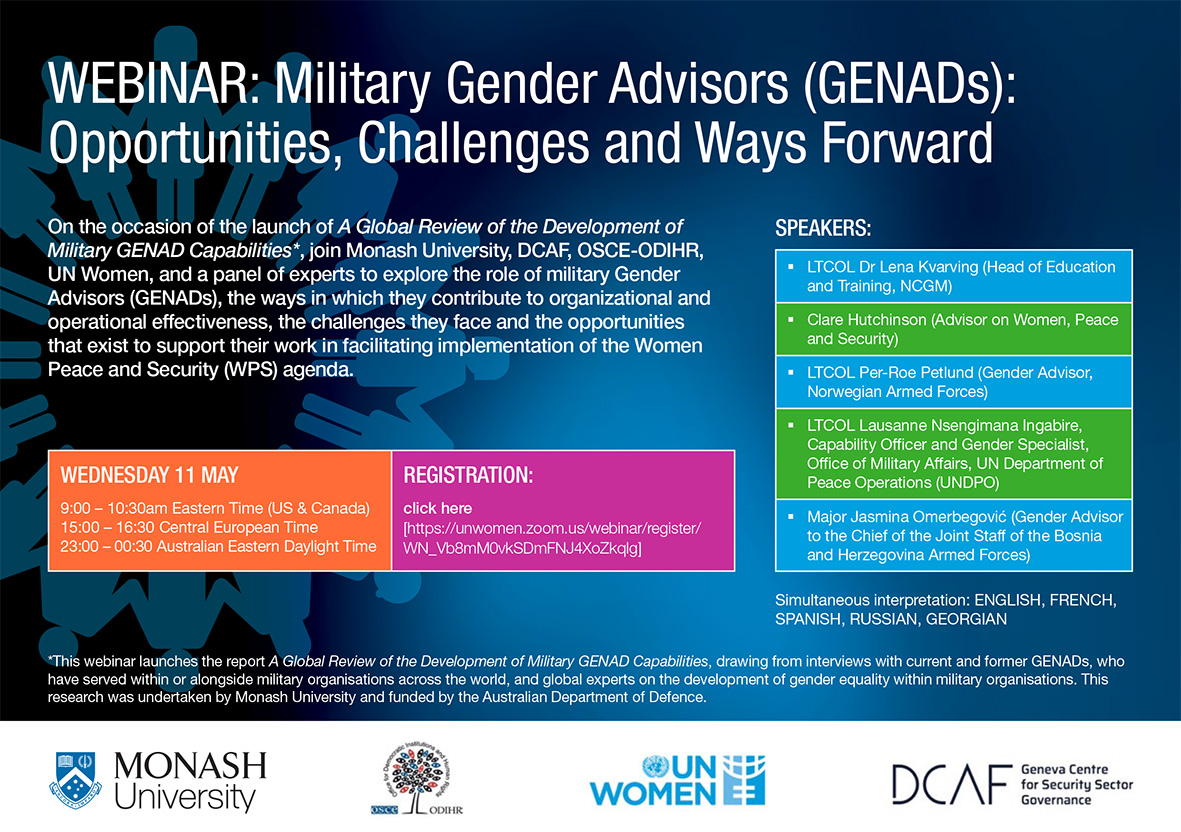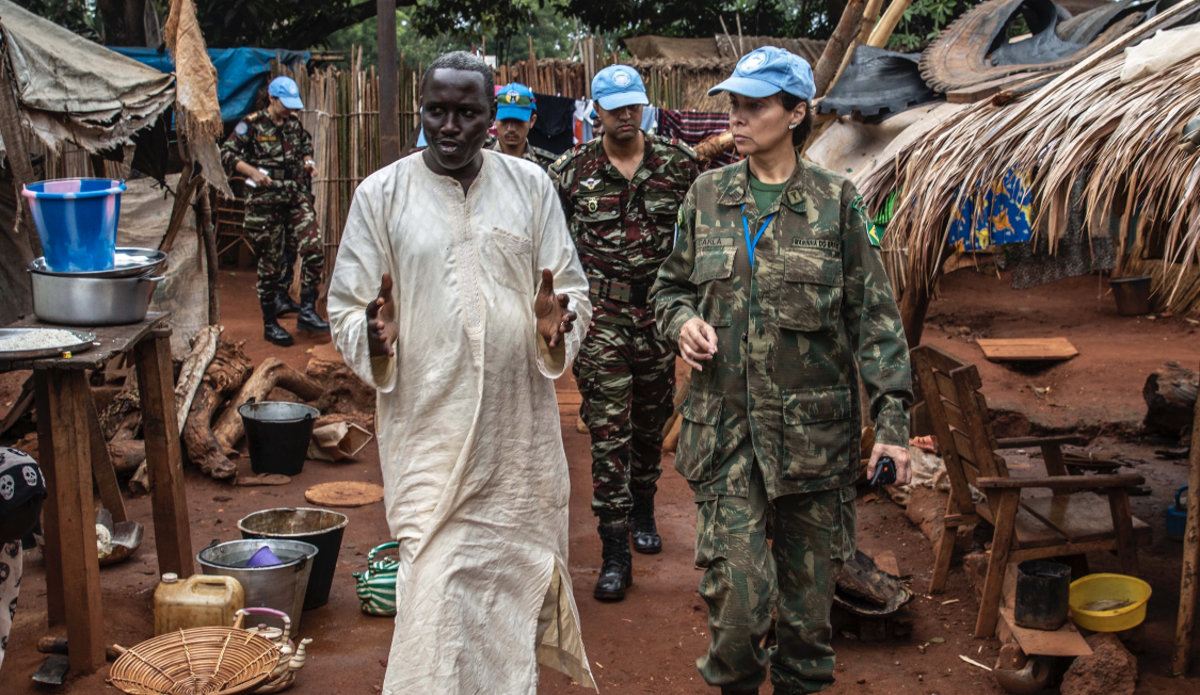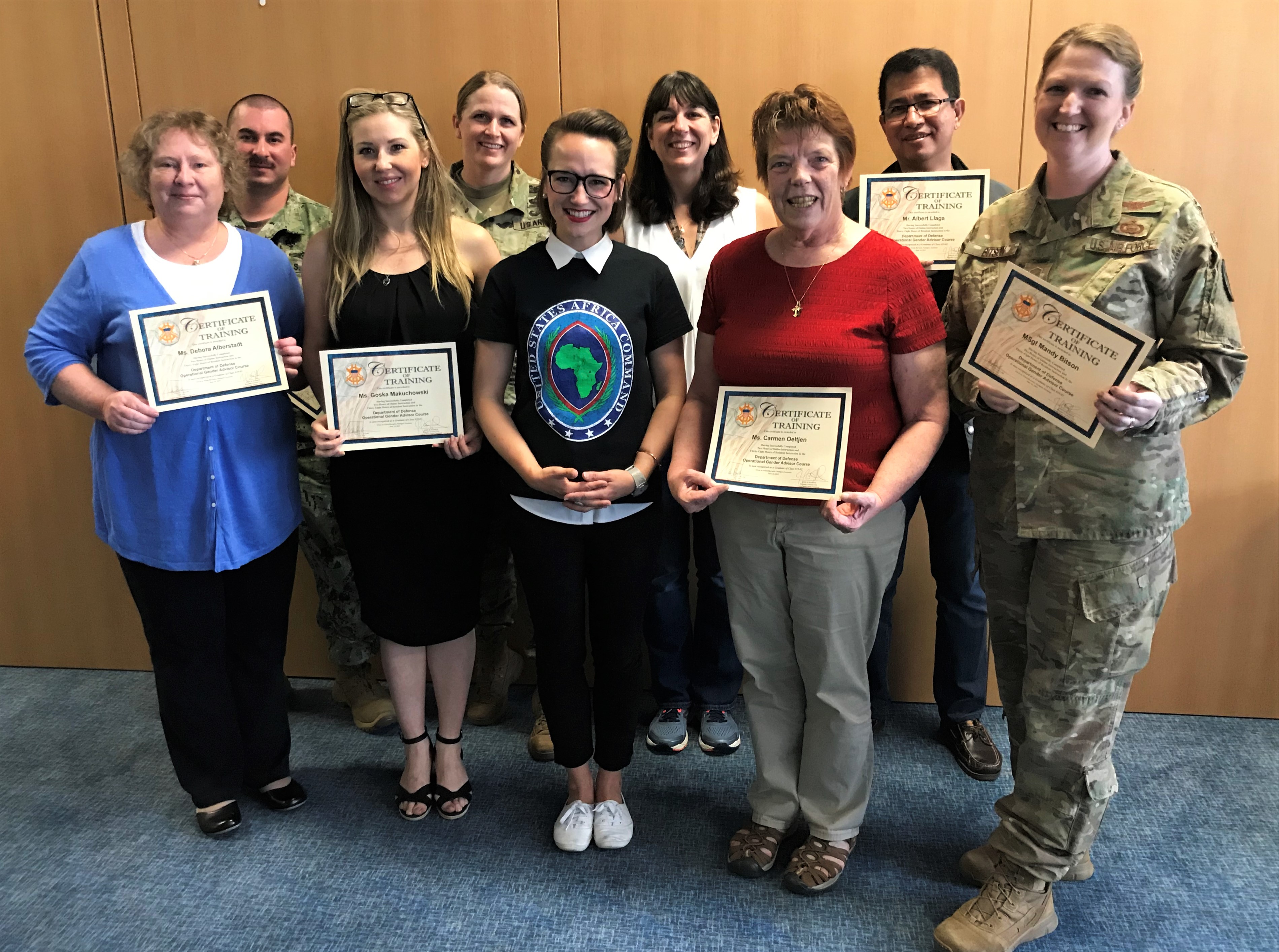Military Gender Advisor - Gender Advisers in Armed Forces (GENADs) are critical to the implementation and effectiveness of the organization and operations of the United Nations Women, Peace and Security (WPS) agenda. Realizing this potential fully requires better investment in training and resources, stronger leadership and support, and stronger policy.
GENADs in military organizations are a relatively recent phenomenon, but over the past decade they have become a common part of armed forces, peacekeeping operations, and other humanitarian operations around the world. Along with Gender Focal Points (GFPs) and other gender personnel, they constitute the capacity of GENAD within the armed forces, responsible for facilitating the implementation of the UN WPS agenda and gender mainstreaming practices.
Military Gender Advisor

The WPS agenda consists of ten UN Security Council Resolutions (UNSCR), starting with the landmark UNSCR 1325 adopted by the Security Council in 2000. The WPS Agenda emphasizes that women and girls are particularly affected by conflict and have different needs. in security. The importance of preventing all forms of violence against women and girls and protecting and promoting their rights in conflict-affected environments.
How The Canadian Military's Gender Advisers Are Ensuring Female Perspectives Are Part Of Peace Process
Critically, the WPS agenda promotes the full and meaningful participation of women in all areas of peace and security decision-making and action, and integrates a gender perspective into peace and security efforts. It is not only about recognizing and responding to the specific needs of women and other genders, but also recognizing the fact that without the meaningful participation of women and the integration of the gender perspective , sustainable peacebuilding efforts will be compromised. Indeed, by highlighting the unique effects of conflict and disaster on women and girls and excluding them from conflict prevention and peace-building efforts, through the WPS agenda, the UN Security Council promotes also on violence against women, gender inequality and inter-relationships. Armed struggle
The WPS agenda clearly focuses on the important role of GENADs in supporting gender-responsive peace operations and promoting gender equality in conflict and crisis contexts. GENADs in military organizations play a key role in implementing the WPS agenda in peacekeeping operations and other deployments, ensuring "gender mainstreaming" in plans, policies and practices. Gender mainstreaming involves incorporating a gender perspective into policies and programs and prioritizing gender equality – for example, by enabling women to participate in decision-making with equal access to all roles and leadership opportunity. GENADs work to integrate a gender perspective, ensuring that the specific needs and concerns of different genders are more thoughtfully considered and that conflicts, humanitarian crises and disasters - and their responses - affect of women, men, women, men and other people. The sexes are different. In peacekeeping operations and other deployments, responsive and effective engagement is essential, as is harm prevention.
By managing the WPS vision internally, GENADs play a key role in advancing the WPS agenda within military organizations, as well as through their work influencing strategic thinking, work practices and culture. in the workplace of military organizations. This is done by promoting gender equality, including prioritizing gender and supporting the participation, retention and advancement of women.
In addition to being instrumental in accelerating the implementation of the WPS agenda, GENADs enhance organizational and operational effectiveness by promoting gender equality and diversity in the armed forces and ensuring gender-responsive operational and organizational planning, policy and practice. Gender equality, organizational diversity, and gender-responsive policies can benefit organizational effectiveness, improve employee well-being, and reduce unintended harm in organizations, including militaries.
Role Of Women In Un Peacekeeping Missions
GENADs play a key role in influencing the mindset and behavior of military organizations through regular training in gender awareness and gender-first practices in all areas including human resources, logistics, intelligence and communication. In doing so, GENADs improve the military's ability to provide effective, gender-sensitive responses to crises affecting communities.
Although the policy frameworks governing the work of GENADs have become stronger at the global, regional and national levels, they still lack the clarity and strength needed to fully support GENADs in their work and communicate the purpose and value of their work to military structures. . This prevents the full realization of the benefits of GENAD's military capabilities.
Similarly, although training programs for GENADs have increased in quality and quantity over the past few years, they are often insufficient in substance and duration to fully equip GENADs with the knowledge and skills needed to doing their job. This is especially true given the challenging contexts in which GENADs often work. GENADS may be completely unaware of – or resistant to – the need to promote gender equality and respond to insecure environments or within military institutions. This is especially problematic because GENADs are often recruited from the junior ranks, have little experience or knowledge, and benefit from little or no delegation, which can limit their influence over others and their ability. to challenge and change cultures, behaviors and attitudes. Within the organization.
GENADs need strong and vocal support from senior military leadership to raise awareness of GENAD's work and its importance in military organizations. This support must be matched with sufficient resources and a clear and stable structure that is integrated into the military organization and provides a career path for GENADs. Often, these necessary leadership, resources and structures are lacking, hindering the work of GENAD. Similarly, the lack of adequate training on gender and WPS responsibilities for all military personnel, at all ranks and in all functions, affects the understanding, support and effectiveness of the work of GENADs.
Nato Gender Advisor Course
However, there is considerable expertise, experience and commitment to implementing the WPS agenda in many services and former GENADs around the world. There is a growing commitment to the WPS agenda and investment in its implementation efforts on the part of military organizations. There is also a culture of sharing training resources, information and advice, although it would benefit from a formal mechanism or global hub for the exchange of best practice related to GENAD, lessons learned pillows and other resources. More needs to be done to improve GENAD's work in facilitating the implementation of the WPS agenda.
To fully realize the benefits that GENADs provide to the military, military organizations must recognize the GENAD capability and incorporate it into their structure. The GENAD capability must be adequately staffed by personnel with appropriate senior rank and military experience, necessary training, adequate resources, a clear and stable policy framework to guide the their work, and the full and visible support of senior leadership. It will also improve the implementation of the WPS agenda and improve organizational and operational effectiveness.
Eleanor Gordon is Senior Lecturer in Politics and International Development and Deputy Director of the Master in International Development Practice Program at Monash University.
Jennifer Wittwer, CSM is an international consultant, speaker and author on women, peace and security and gender mainstreaming in security sector organizations.
U. S. Southern Command Hosts Second U.s. Operational Gender Advisor Course > U.s. Southern Command > News
Sarah Brown is an international consultant on human rights and gender, peace and security and a former military gender consultant.
This article is taken from a research project (A Global Review of the Development of Military Gennade Capabilities) funded by the Australian Department of Defense's Strategic Grants Program (2020-2021) and led by Associate Professor Katrina Lee-Koo (Monash University) ).
How Australia Can Be a Catalyst for Civil-Military Cooperation in Southeast Asia A suitable overseas strategy will require Australia to rethink its policy at home. Gender (in)security – Pacific Reality By Betty Barkha26 March 2020 Pacific populations have long been on the front lines of natural disasters and climate crises. Crises are particularly damaging to women and those of different genders. From Victims to Activists: Women's Engagement and Participation P/CVEN By Ann-Katherine Rothermel and Doris Asante08 March 2022 For too long, women have been underrepresented in policy responses to political violence and extremism. While preventing and countering violent extremism has helped improve women's representation, there is still a long way to go. The Military Gender Advisor (MGA) training program is a project developed by the United Nations Institute for Training and Research (). In cases where the protection of women is necessary to ensure the integration of the gender perspective in the implementation of peace operations, in collaboration with the UN Department of Peace Operations (DPO) and in collaboration with France and the Organization Internationale de la Francophonie (OIF). ), women and gender and sexual minorities and their participation in peace processes remains an important challenge.

This first-ever UN training for Military Gender Advisors (MGAs) and Military Gender Focal Points (MGFPs) in peacekeeping operations is part of the development of the Women, Peace and Security (WPS) Agenda and the Unified Gender Strategy 2018-2028 .
Belangrijk Dat Dames Op Hoog Niveau Meepraten'
This training program consists of two parts, an online training that provides the knowledge and skills needed to become an MGA and a face-to-face training that allows participants to become an MGA.

Post A Comment:
0 comments so far,add yours